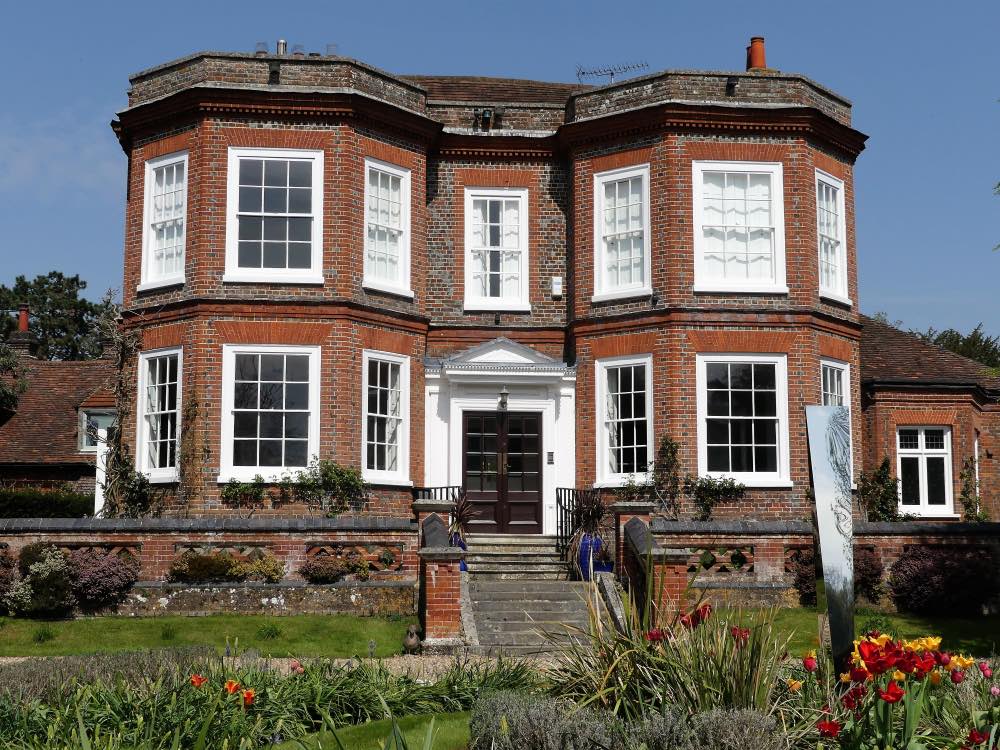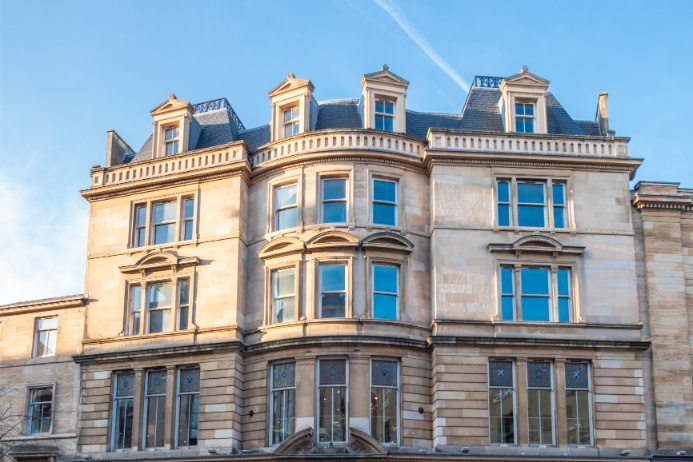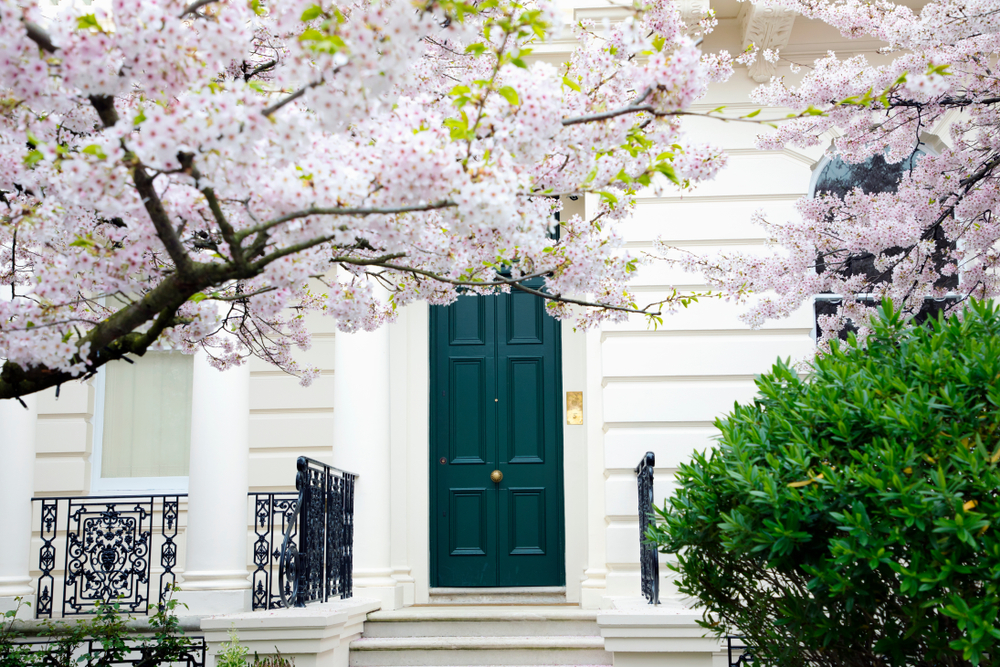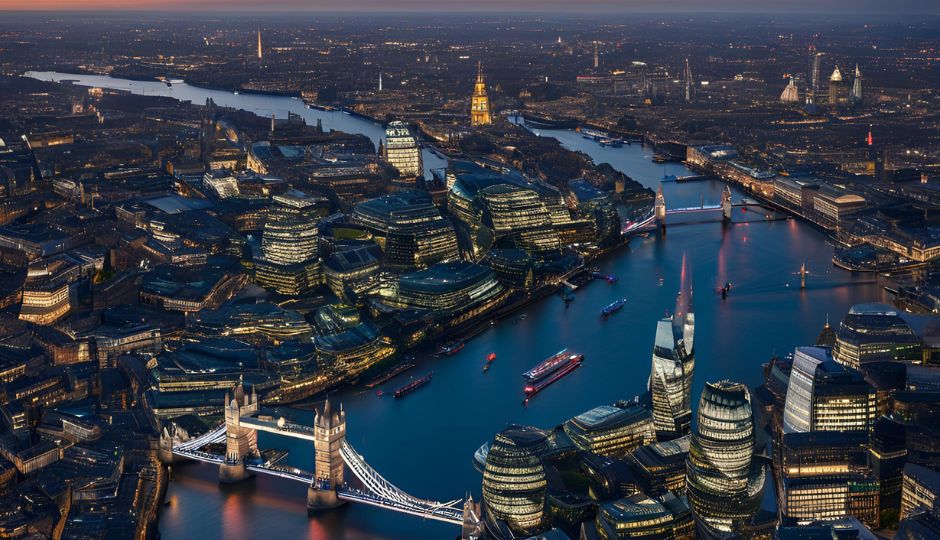An increasing number of prime property owners across the globe are hiring their homes out for filming. Whilst it may not be the primary concern when buying your dream property, the prestige and additional earnings potential could be a significant bonus. There’s also the opportunity to have your property used in a photo shoot, which is less invasive and time intensive, but could provide some pocket money, with rates up to £5,000 per day from these pursuits.
A stately home statement
The recent Amazon Prime psychological thriller Saltburn, was filmed at a private English estate called Drayton House in Northamptonshire. The Grade 1 listed house built in the 1300s is not open to the public and belongs to the Stopford-Sackville family. It had never been used for filming before, helping enhance its allure as producers wanted somewhere truly unqiue. Other notable stately homes use for filming include Ettington Park, used in the first adaptation of Shirley Jackson's 1959 gothic horror novel ‘The Haunting of Hill House’, Stokesay Court from the 2007 Keira Knightley film Atonement, and perhaps most famous of all Hampshire’s 200 room Highclere Castle, of Downton Abbey fame.
You might think that only mansions in magnificent grounds are wanted for film locations, but some homes are chosen for specific reasons such as their age, location, or unique design style. Occasionally films and TV shows use standalone sets, but properties owned by regular people are used more often than you think, and different shoots have vastly different needs.
Remember the iconic bright blue door of William Thacker’s home in Notting Hill, played by Hugh Grant? The six-bedroom home in Westbourne Park Road, belongs to none other than Writer Richard Curtis, and is said to be worth around £5million. Fuelling its very own romantic tourism to the famous London area, and arguably enhancing the appeal and value of neighbouring residences.
Get in the Know
Subscribe to our newsletter
Classical properties
Built in 1729, Missenden House is the Grade II listed Georgian property, featured in the BBC’s Vicar of Dibley. The house was originally owned by Jonas Deacon, a wealthy East India merchant. Over the years, it underwent extension, including an additional wing in around 1850. The present owners, who have resided there since 1994, undertook a significant remodelling project to restore Missenden House to its former glory. It has eight bedrooms and is worth in the region of £4m. Although the series has now ended, its enduring appeal and re-run guarantee to ensure the property remains in the public conscience.
Most of us also know the iconic red brick Georgian-Colonial ‘Home Alone’ house, where Kevin McCallister (Macauley Culkin) set booby traps for a couple of unsuspecting burglars who thought the house was empty. Whilst many of the interior shots were filmed inside a local abandoned school, the red-carpeted staircase and living room scenes were remarkably all shot inside the home. Now available as a Lego collectors set, the 5,000 square feet house located about 20 miles from Chicago, was purchased two years before the film’s release by John and Cynthia Abendshien for $800,000. During the filming of the movie, the Abendshien family reportedly lived on the second floor in a makeshift apartment. In 2012, the house was sold for a cool $1.585 million. Whilst the current owners are unknown, the house is now thought to be worth around $3m dollars.
Tucked away in Bethersden in Kent, is the Grade II listed oast house that rose to fame as the farmhouse used in the 90’s comedy drama the Darling Buds of May, starring David Jason, Pam Ferris, and Catherine Zeta Jones. The farmhouse is set in 35 acres of land deep in the countryside. Available to hire, it makes an excellent wedding venue for up to 120 guests and sleeps 10 with 5 double bedrooms, it last sold for just under £1m.

How do I register my home for filming?
To list your home as available for filming, you can register with a location broker or agent. The benefits of going through this type of company, is that it gets your property in front of a number of location managers, scouts, and production companies. Often, they also take care of the administration, contracts, marketing, and overall management of your home for filming opportunities, ensuring everything runs smoothly on your behalf. Alternatively check out websites like www.film-locations.co.uk, lavishlocations.com, shootfactory.co.uk, and locationworks.com.
A prerequisite for getting your home listed, is usually a comprehensive set of images showing every aspect of the house, including all of the interior, exterior, gardens and any additional land. This will allow the agent to effectively market your property online and send details to prospective clients.
What makes a house attractive as a film set?
There are several factors which are seen as desirable for filmmakers, but what makes a house attractive can vary based on the specific project.
Architecture
Unique architectural features can add character to a photo shoot, TV programme or film. Intriguing designs, historical elements, ultra-modern or distinctive styles can enhance the visual storytelling. Alternatively, a completely blank canvas or a very simplistic style can also appeal for its versatility and adaptability.
Style and décor
Sometimes the style of a house can influence the mood and tone of the film. Producers will be looking for houses that are furnished and decorated in very tasteful, sleek, interesting, or quirky ways, or simply in a minimalist style.
Views
Houses with impressive landscapes, interesting surroundings or enticing backdrops are particularly revered as this can add to the ambience of a scene.
Space
A house with lots of indoor and outdoor space is also desirable to film makers, largely because it can be adapted to suit the different needs of a range of scenes and there’s plenty of room for equipment. A house with plenty of land and parking will make things easier logistically for the actors and crew, so this will be an added benefit.
Things to consider when renting your house as a film set
Living arrangements
Most of the time, when your home is being used for filming, you won’t need to move out. However, it depends on the specific job. If they do need you to move out, the production company are likely to pay for you to temporarily live in a hotel but ensure that you negotiate this as part of your contract.
Some productions will only use part of the property for filming, the film crew will therefore require that you stay out of their way, but you may need to be on hand to answer queries or provide entry to the property as required.
Terms and conditions
If you’re going to rent out your home for filming, you should always ensure that you have a written contract in place. The contract should stipulate how long the crew plan to use the property for and the associated remuneration on offer, as well as any compensation provided should filming exceed the initial timescales.
If you’re using a location agent, they’ll typically take around 20% of every booking. Beware of sign-up fees or ongoing listing fees. Of course, you could go it alone and take all the profits for yourself, but you’re unlikely to have access to the same contacts and resources as an agent, and it could make things more difficult to manage.
Some producers may wish to redecorate. Make it clear whether you’re open to having your home redecorated, and if there’s an expectation to restore it back to its original condition post-production. Maintain open communication with the production company. Discuss any specific requirements or concerns you may have and be clear about your expectations regarding the use of your home during filming.
Damages
Accidents happen and having a busy film crew in and out of your property with heavy equipment could inevitably lead to property damage.
The film company should have public liability insurance as standard so they will be able to pay for breakages but it’s good for your insurers to know what’s going on. Check that you’ll be covered in the event of any incidental damage to your property from filming.
Before filming begins, it’s a good idea to take detailed photographs of your house. Capture both the exterior and interior. These photos will serve as evidence of the property’s original condition and will be useful for comparison after filming.
Do I need a specialist mortgage to use my home for filming?
Whilst there’s no specific specialist mortgage for using your home as a film set, it’s prudent to ensure your mortgage terms allow such activities. Inform your mortgage provider about your plans as soon as possible.
If you already own a million plus home or are looking to secure a second home that you can use to generate income in this way, it’s worth chatting to a specialist broker proficient in dealing with high-net-worth individuals. They’ll typically have access to a range of private banks and lenders who can take into account your overall wealth portfolio, including income which is structured in an unusual way, unlike High Street lenders who are generally much more rigid in their criteria.
If you think your home could be suitable for filming, and don’t mind some occasional disruption, it’s definitely an avenue worth looking into. Not only could it lead to an additional income stream, it may raise the profile of your home, and it could also increase its value. Now that’s a wrap.





